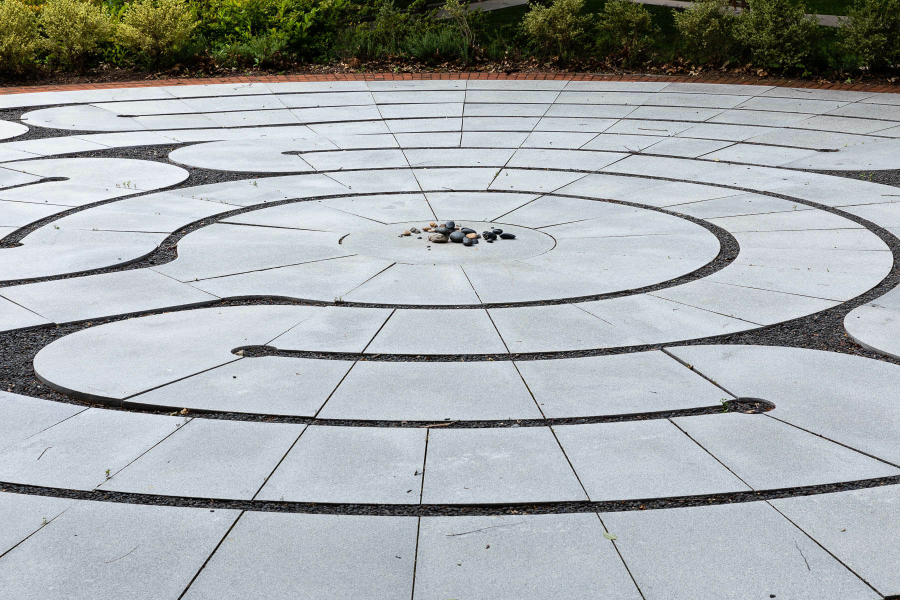Mental health initiative connects UMD students with the outdoors

As the mental health of college students continues to be a concern in the United States, some academics believe that part of the solution lies in a simple, relatively inexpensive campus feature: nature.
There is a growing body of research showing that time outdoors is good for you, with some studies showing that as little as 10 minutes is enough to have significant mental and physical health benefits.
This research has spurred on a grassroots movement known as Nature Rx, which seeks to educate people about the healing power of nature.
At the University of Maryland, professors Jennifer D. Roberts and Shannon Jette have launched a Nature Rx program they believe is needed at the campus. As kinesiology professors within the university’s School of Public Health, Roberts and Jette are both interested in how our modern relationship with nature affects our health.
“Our current lifestyle of being out of nature is very unnatural,” said Jette.
Though still in its infancy stage—mostly due to the complications of the COVID-19 pandemic—Nature Rx @ UMD leverages existing campus resources to help students reduce their anxiety and depression through nature. The program kicked off on Earth Day in 2019 with a slew of activities, including a creek cleanup, a campus 5K run, morning yoga and a traditional Chinese meditative practice called Qigong.

According to Roberts and Jette, the program has four arms: prescriptions, research, education and recognition/honor.
For the “prescription” component, the program advocates for students to literally be prescribed hikes, nature walks and other outdoor activities to treat mental health issues. Roberts and Jette are in talks with the school’s health center to make this a reality, and are also working on utilizing existing peer-to-peer programs where students provide medical education to other students.
“Students are trained to give a certain level of health and medical education to their peers,” said Roberts.
In 2022, Master of Public Health students and faculty organized a shinrin-yoku session, which is similar to the practice of forest bathing, for a course on creating and evaluating physical activity interventions. During the session, psychotherapist Dr. Heidi Schreiber-Pan took 15 students into a dense forested area on campus and had them sit and observe the space’s details, from the tree canopy above to the insects on the ground.
“The students really responded to it,” said Roberts. “I can tell when students are quiet because they’re checked out and when they’re quiet because they’re enjoying it.”
As a part of the event, the students conducted a survey gauging participant’s mood, energy level and relationship to nature before and after the experience. This incorporation of student research points to the “research and education” arms of Nature Rx @ UMD, which creates opportunities for students to advance the study of how nature affects us.

Though Roberts and Jette are spearheading Nature Rx @ UMD, they credit a number of professors and academics involved. One of which is Dr. Robert Zarr, a founder of the Park Rx movement who the professors saw speak when their campus program was just an idea. After forming, the University of Maryland program became another “Campus Rx” program that now includes fifteen members.
“People have been so helpful and interested and we have been able to leverage so many of our resources,” said Roberts.
The program’s fourth arm, recognition/honor, involves creating dialogue around issues such as slavery and land dispossession. At the University of Maryland, this could involve recognizing that the university’s founder, Charles Benedict Calvert, was an enslaver, and that the land the campus exists on was taken from the Piscataway people.
Creating space to discuss these issues reminds us that not all people experience the outdoors in the same way. For some groups, natural spaces can bring to mind painful experiences and historical trauma related to racial violence. Access to green spaces can also be limiting based on the community you live in.
“For communities of color, there's a high proportion of them who don't have an accessible park,” said Roberts.

On the other side of campus from Roberts and Jette’s offices you’ll find one of the university’s best green spaces: the Garden of Reflection and Remembrance. Tucked behind an old stone chapel, the garden features a mixture of native and exotic plants, mature tree canopy, sustainably produced pavement and building materials, and a granite labyrinth. Under one of the benches is a notebook that students anonymously write in, everything from encouraging messages to descriptions of hardships.
According to Roberts and Jette, there is an additional overarching theme for Nature Rx @ UMD of environmental stewardship and sustainability. By connecting students with nature, the professors hope to inspire them to conserve and protect it.
At the Chesapeake Bay Program, we have a Stewardship goal that seeks to increase the number of people that actively support and carry out conservation and restoration activities, as well as a Diversity Outcome, which seeks to expand the diversity of people involved in restoration of the Chesapeake Bay. These goals and outcomes are based on the same premise that not only should everyone be able to benefit from natural resources such as the Bay, but also that we need as many people as possible caring about its future.
“We need to recognize what a gift nature is and that we need to start taking it seriously,” said Jette.

Comments
There are no comments.
Thank you!
Your comment has been received. Before it can be published, the comment will be reviewed by our team to ensure it adheres with our rules of engagement.
Back to recent stories